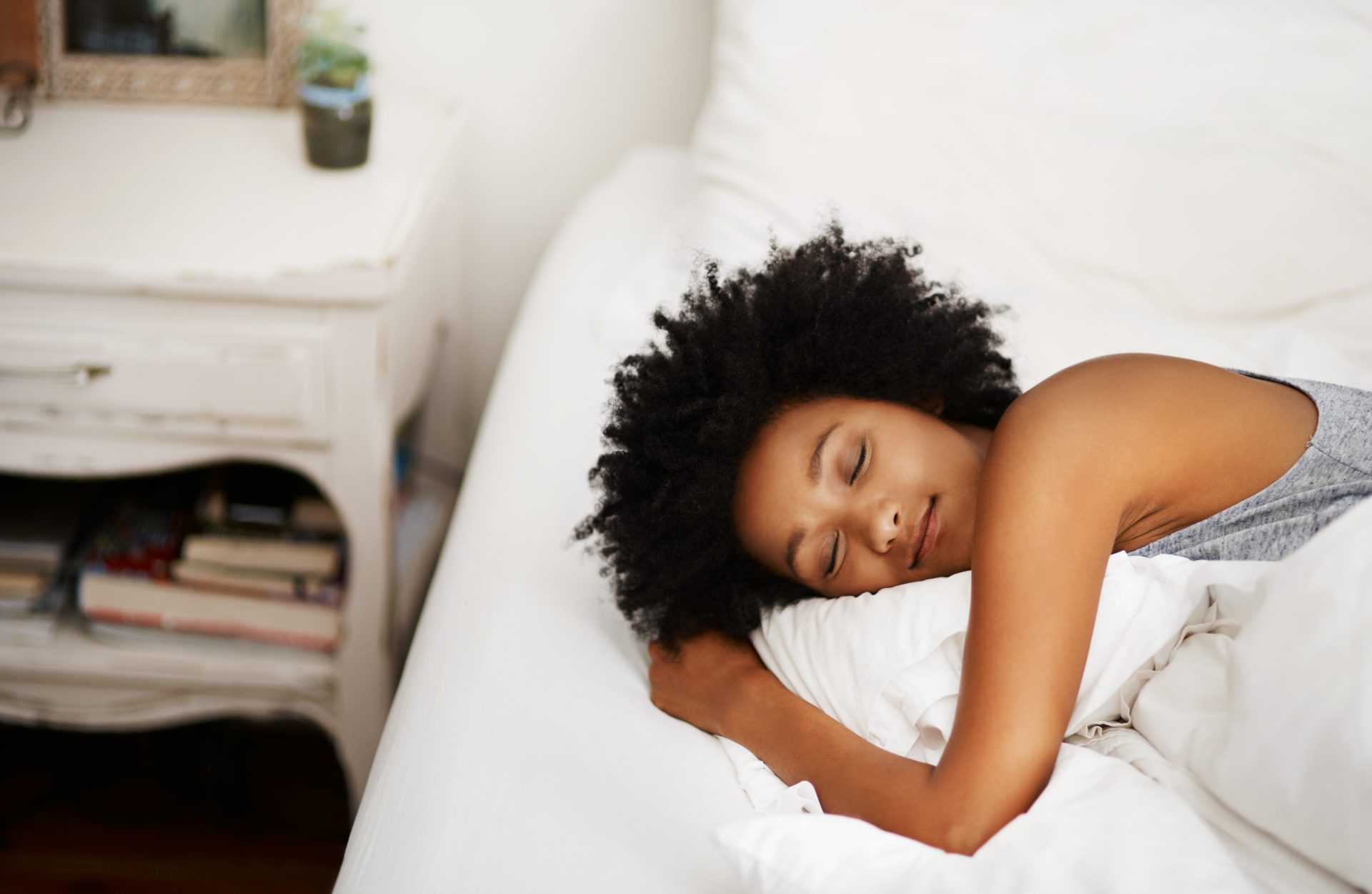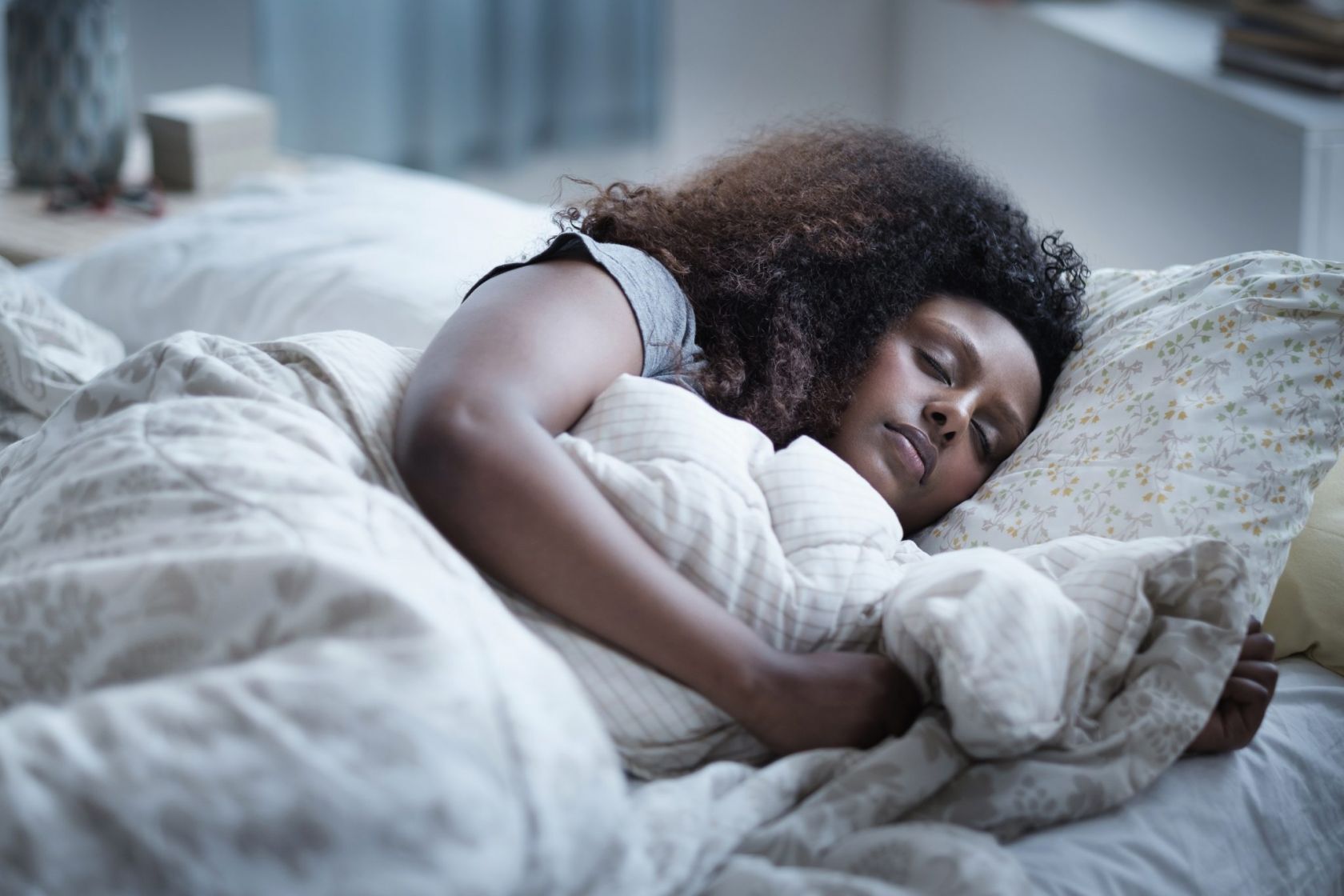We all know how good sleep is for us and that we probably need more of it. Writer Miranda Larbi explores exactly how lack of sleep impacts your fitness routine and what you can do to change it.
Glorious sleep. Something we were all born to do and something most of us love to do, yet the vast majority of us just don’t get enough of shut-eye. In fact, a 2018 study by the Sleep Council reported that just 6% of us are getting the recommended eight hours of sleep every night, with only one out of ten Brits reporting that they wake up feeling rested every morning.
It’s not just that sleep makes us feel good and prevents us from falling asleep at our desks. It’s the glue that keeps us functioning in every regard – particularly when it comes to exercise and movement. Chronic under-sleeping can lead to a plethora of problems from diabetes to irritability – and interestingly, even injury.
You may also like
Can’t sleep: why do I wake up at the same time every night?
Did you know that kittens only grow when they’re asleep (thank you, Christmas cracker fact)? Well, our muscles are kind of like those little cats; they only repair and grow when we’re at rest – i.e. when we’re asleep. If you’re training hard, but not getting the necessary downtime, you won’t make any gains.
In other words, sleep is a fundamental component of building muscle. And that muscle-repairing ability is also a key part of injury prevention. Athletes who sleep for at least eight hours a night decrease their risk of injury by up to 60%, according to 2019 research published in the Orthopaedic Journal of Sports Medicine.
In fact, sleep helps us recover from all sorts of ailments. If you’ve got a cold, a good amount of slumber can help stem the sniffles sooner. Interestingly, wounds and cuts even heal faster the better sleep you get.

Moving to improve sleep
Sleep and exercise are two sides of the same coin. How we exercise impacts how well we sleep, and conversely, our sleep habits dictate how well we move. In fact, even micro-changes to our exercise regime can impact sleep quality. A 2019 study by Penn State found that doing more exercise than normal or doing slightly less for just one day can affect how you sleep later that night. Researchers tracked a group of teenagers for one week to see what happened to the quality, length and timings of their sleep when they did more physical activity than usual. For every extra hour of moderate-to-vigorous physical activity, the teens fell asleep an average of 18 minutes earlier, slept 10 minutes longer and experienced deeper and more restful slumber. When they were more sedentary than usual, they fell asleep and woke up later, and slept for a shorter amount of time overall.
A poll conducted by the US-based Sleep Foundation found that people who exercise regularly report better sleep than those who don’t, are less likely to feel tired during the day and are at lower risk of disorders like sleep apnea. The research found that exercising at any time of the day improved sleep (so if you prefer late-night jogs or gym sessions, you’re in luck).
The study also found that you don’t necessarily need to be smashing PBs or lifting heavy to reap the benefits – sitting for fewer than eight hours a day equated to ‘very good’ sleep quality – suggesting that simply moving as much as possible throughout the day could pay off in the bedroom. If you have a desk job, that means taking regular breaks from your desk, spending your lunchtime going for a walk, and making an active effort to move before and after your shift.
You may also like
Deep sleep: what is it and how much do you need?
As for exercising in the evening, does smashing weights just before lights out or going for a late-night run help us to drift off even sooner?
“There is some research suggesting that exercise in the hour before you go to bed might be detrimental, but there are many factors that may influence how strong (if at all) this effect could be. There isn’t currently a conclusive rulebook to follow when it comes to exercise prior to sleep,” explains Chris Baird, head of training at Oro and strength & conditioning coach in Loughborough Sports Performance Team. It’s more important to look at what our sleep is influenced by, he says – our circadian rhythm (or biological clock), sleep pressure (our body’s need for sleep) and psychological state (i.e. how calm we feel).
Exercise’s impact on falling asleep is likely due to one of these three mentioned factors being disturbed. Chris says that our core body temperature, blood pressure and psychological alertness all play a crucial role in regulating our sleep, and that all of these variables have a propensity to change when we exercise.
“Even small shifts in our body temperature can have a significant influence on our ability to fall asleep. Of course, the degree to which these factors change during exercise depends on the type and duration of activity, environmental conditions, and an individual’s own physiology.” The general rule of thumb is to avoid intense exercise just before bed. Skip the HIIT and instead, go for a slow, stretchy yoga session to help you wind down both mentally and physically. Research has shown that yoga and stretching can help to lower cortisol levels and reduce blood pressure, as well as improve our mood – and all of those elements can make sleep more available to us.

Sleep to move better
You might be wondering how all this is relevant if you feel pretty alert during the day. After all, it’s not always practical to get eight hours of sleep when you work until 6pm and still have to hit the gym, cook dinner, and take a shower. By the time you’re in bed wearing your pyjamas, it’s already past 10pm – and you can’t go to sleep without a relaxing episode of Selling Sunsets, right?
While it’s true that some of us can function on less sleep than others, you don’t really know how alert you could be if you continually short-change yourself. Flooding your senses with blue light from tech every night fools the brain into thinking that it needs to stay alert – meaning that although you might drift off mid-episode, you’re not actually diving into that deep, restorative sleep.
A good first port of call is to spend a week tracking your sleep. Many fitness trackers have a sleep function built into them. Take Garmin watches for example. You can wear your watch in bed for seven days, and then check their Garmin Connect app to see how much kip you’re averaging per night – and crucially, how much time you’re spending in “deep sleep.” Once you’ve got your data, you can set about making changes. Those changes might include:
- Having a tech-free hour before bed and downloading a blue-light blocker like f.lux onto your screens
- Practising yoga before bed (a yin session or a slow and stretchy flow)
- Completing any heavy lifts or long runs earlier in the day (at least two hours before you want to go to sleep)
- Ensuring that you’re active during the day (outside of your gym, run or daily workout). This includes walking as much as possible and taking regular breaks from your desk.
- Using an app like Headspace to help you meditate and relax in bed (if you’re keeping tech out of the bedroom, then try journalling or meditating solo instead)
- Keeping the bedroom free from food and work (such as packing up your laptop so it’s out of sight if you work from home)
- Setting solid bedtime routines (try to set yourself a goal bedtime during the week)
Once we start to see sleep as a non-negotiable part of our fitness regime, habits form. We start to move easier, recover faster, feel stronger – and the more we move, the better we sleep.
Follow @StrongWomenUK on Instagram for the latest workouts, delicious recipes and motivation from your favourite fitness experts.
IMAGE: Getty
Source: Read Full Article
